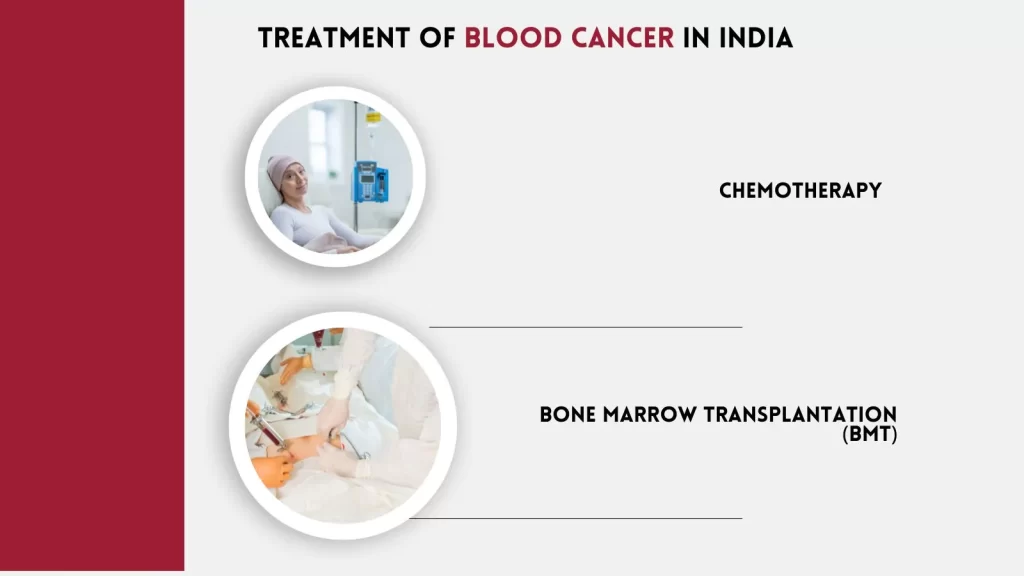
An international campaign called Blood Cancer Awareness Month aims to increase public awareness of one of the most common and dangerous types of cancer. Every September, blood cancer is strongly highlighted, along with its effects on our communities and the urgent need for more action.
The significance of Blood Cancer Awareness Month sheds light on different types of blood cancers, discusses risk factors and symptoms, explores support motivates, decision-makers to give the condition top priority, gives those affected by the disease a sense of community and support, and highlights the importance of early detection and ongoing research.
What is Blood Cancer
Blood cancer, also known as hematologic cancer, is a type of cancer that affects the production and function of blood cells. It happens when the abnormal cells in the blood start to multiply uncontrollably, interfering with the normal functioning of the immune system, oxygen transportation, and clotting processes. There are three main types of blood cancers: leukemia, lymphoma, and myeloma. Each type has its own characteristics and requires specific treatment approaches.
The Types of Blood Cancers
- Leukemia: Leukemia is a type of blood cancer that affects the bone marrow and the production of white blood cells. It can be acute or chronic, and the symptoms may vary depending on the type and stage of leukemia.
- Lymphoma: Lymphoma is a cancer that begins in the lymphatic system, which plays a crucial role in the body’s immune system. There are two main types of lymphoma: Hodgkin lymphoma and non-Hodgkin lymphoma, each with distinct characteristics and treatment options.
- Myeloma: Myeloma, also known as multiple myeloma, is a cancer that affects plasma cells in the bone marrow. These abnormal plasma cells multiply uncontrollably, leading to weakened bones, kidney problems, and compromised immune function.
Risk Factors and Symptoms of Blood Cancer
Understanding the risk factors associated with blood cancers can help in early detection and prevention. Some common risk factors include genetic predisposition, exposure to certain chemicals or radiation, a weakened immune system, and certain viral infections. Recognizing the symptoms of blood cancer is crucial for early diagnosis. These symptoms may include unexplained weight loss, fatigue, frequent infections, swollen lymph nodes, and abnormal bleeding or bruising.
Treatment of Blood Cancer In India
Treatment of blood cancer has witnessed significant advancements, primarily through two main modalities i.e. Chemotherapy and Bone Marrow Transplantation (BMT). These two approaches have transformed the prognosis and quality of life of many patients diagnosed with various forms of blood cancer.

Chemotherapy – Chemotherapy is a widely employed treatment method for blood cancer in India. It involves the use of powerful drugs to target and destroy cancer cells. The choice of chemotherapy drugs and the treatment regimen depend on the type and stage of blood cancer.
Bone Marrow Transplantation (BMT) – For certain types of blood cancer, such as leukemia and lymphoma, BMT offers a potential cure. In this procedure, unhealthy bone marrow is replaced with healthy stem cells from a donor or the patient’s own harvested cells (autologous transplant). India has established state-of-the-art BMT centers with experienced medical teams and advanced technology to perform successful transplantations. The availability of compatible donors and rigorous post-transplant care contribute to the high success rates of BMT in India.
India’s approach to treating blood cancer through chemotherapy and BMT reflects the nation’s commitment to providing cutting-edge medical care, offering hope and improved outcomes for patients facing this challenging disease.
Support and Resources
For individuals and families that are affected by blood cancer, a strong support system and access to resources are essential. Numerous organizations and foundations provide support networks, educational materials, financial assistance, and counseling services. These resources aim to empower patients, caregivers, and survivors throughout their journey, offering guidance and encouragement.
Our dedicated team of doctors has been effectively treating all types of blood cancer in patients of various ages from around the globe. And have been providing successful treatment to individuals from countries such as India, Nigeria, Cameroon, Kenya, Uganda, Zambia, South Sudan, Angola, Tanzania, Iraq, Afghanistan, Pakistan, Uzbekistan, and more for many years.
Click Here to Watch Success Stories and testimonials of patients from across the Globe who underwent Blood Cancer Treatment:
Early Detection and Ongoing Research
Early detection plays a vital role in the successful treatment of blood cancers. Regular check-ups, screenings, and awareness of potential symptoms can make a significant difference in outcomes. Furthermore, ongoing research and advancements in treatment options, such as targeted therapies and immunotherapies, give hope for improved survival rates and enhanced quality of life for patients.
Read More: Leukemia Treatment Cost In India
Conclusion
Blood Cancer Awareness Month serves as a reminder to educate ourselves and others about the impact of blood cancers. By spreading awareness, supporting research efforts, and fostering a compassionate community, we can make a difference in the lives of those affected by these diseases. Together, let us continue to shed light on blood cancers, encouraging early detection, and providing hope for a brighter future.
Reference
- https://www.wyomingnews.com/rocketminer/county-commission-proclaims-september-as-blood-cancer-and-chidhood-cancer-awareness-month/article_
- https://www.lls.org/article/september-blood-cancer-awareness-month



 (1).png)